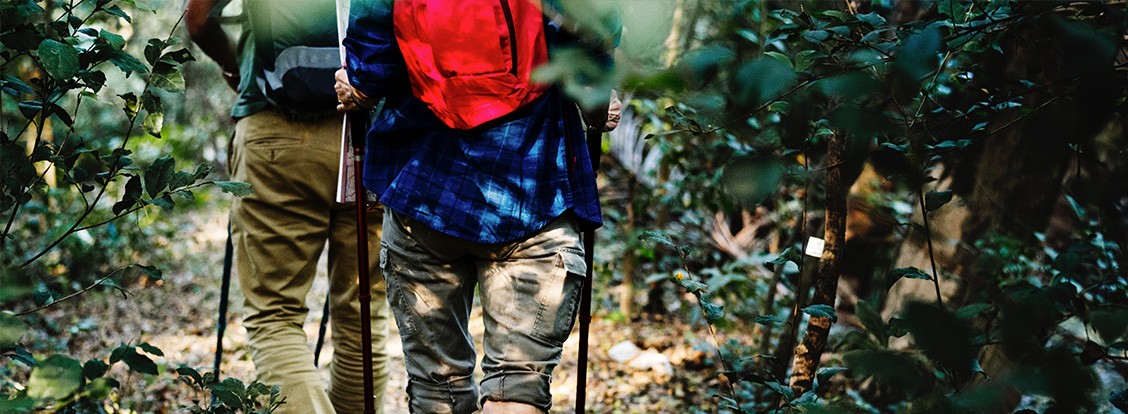Think back for a moment to when you last spent some time in nature. It may have been a brief walk, or you may have spent a whole weekend in a remote scenic location. Regardless of how long you were there, how did the experience make you feel? What did you notice about your mood and your stress levels? What did you notice about your attention, focus and how busy your brain was?
Research suggests that time in nature comes with substantial benefits for our wellbeing. These benefits include:
- improved mood and reduced depression
- increased focus
- reduced hostility
- increased liveliness
- boost in immune function
- reduced blood pressure and pulse rate
- reductions in cortisol, one of your primary stress hormones
- decrease in stress system activity.
Research since the 1980s has demonstrated that, post-surgery, patients recover more quickly when the view from their hospital window is of a natural environment rather than of a built-up suburban view, with these patients needing less pain medication and being discharged sooner. As a result, modern hospital architecture is increasingly including green spaces such as rooftop gardens.
How does nature help?
There are a few reasons that nature is able to have such a powerful impact upon our wellbeing. If we think back over human history, we have spent much more of our evolutionary history in natural settings than in built-up urban environments. As a result, our brains have likely evolved in line with natural environments where the demands on our attention are less than in our modern city environments with stimuli such as cars moving, high volumes of people and even moving billboards. As a result of all these attention-grabbing stimuli, urban environments tend to be draining on our mental resources. In comparison, natural settings tend to have fewer demands for our attention, with fewer and slower-moving scenes, such as a flowing stream or rolling waves. These movements are enough to engage our brains, but typically not so much as to overload our attention. As a result, our brains have an opportunity to rest and reset.
When our time in nature is in the bush, we might also benefit from substances called phytoncides. Phytoncides are released by plants and trees, which contribute to the aroma of the forest. Research suggests inhaling phytoncides improves human immune functioning.
How do I get these benefits?
As the days are beginning to get longer, it is a bit more motivating to get out there, but the winter cold can still be a barrier. Here are a few options for enjoying nature even when it’s cold:
- Make the most of clear weather days to get out for a walk in nature. Rug up, and adopt a helpful mindset such as thinking of the cold as invigorating rather than unpleasant.
- If you need some extra motivation, reward yourself with a hot drink to warm up those fingers on your way home.
- Find a café with a view or drive to a scenic spot and enjoy the view from inside your car with the heater on. Research suggests that even looking at nature, especially awe-inspiring views, has a beneficial effect. Stormy weather can be just as interesting to watch as a nice day.
- Get out in the garden if you have one. Gardening at home has been shown to increase life satisfaction, quality of life, sense of community and cognitive functioning.
- In order to get the most out of your restorative time in nature, leave your tech behind or at least turn off alerts.
- While the benefits are likely to be greatest if you can touch, smell and hear the natural environment, that isn’t always possible. If you can’t get out into nature, research suggests even looking at a natural image has some of the same restorative qualities. Put up some photos of nature, change your screen saver to a scenic image, put some pot plants around you, or watch a nature doco.



